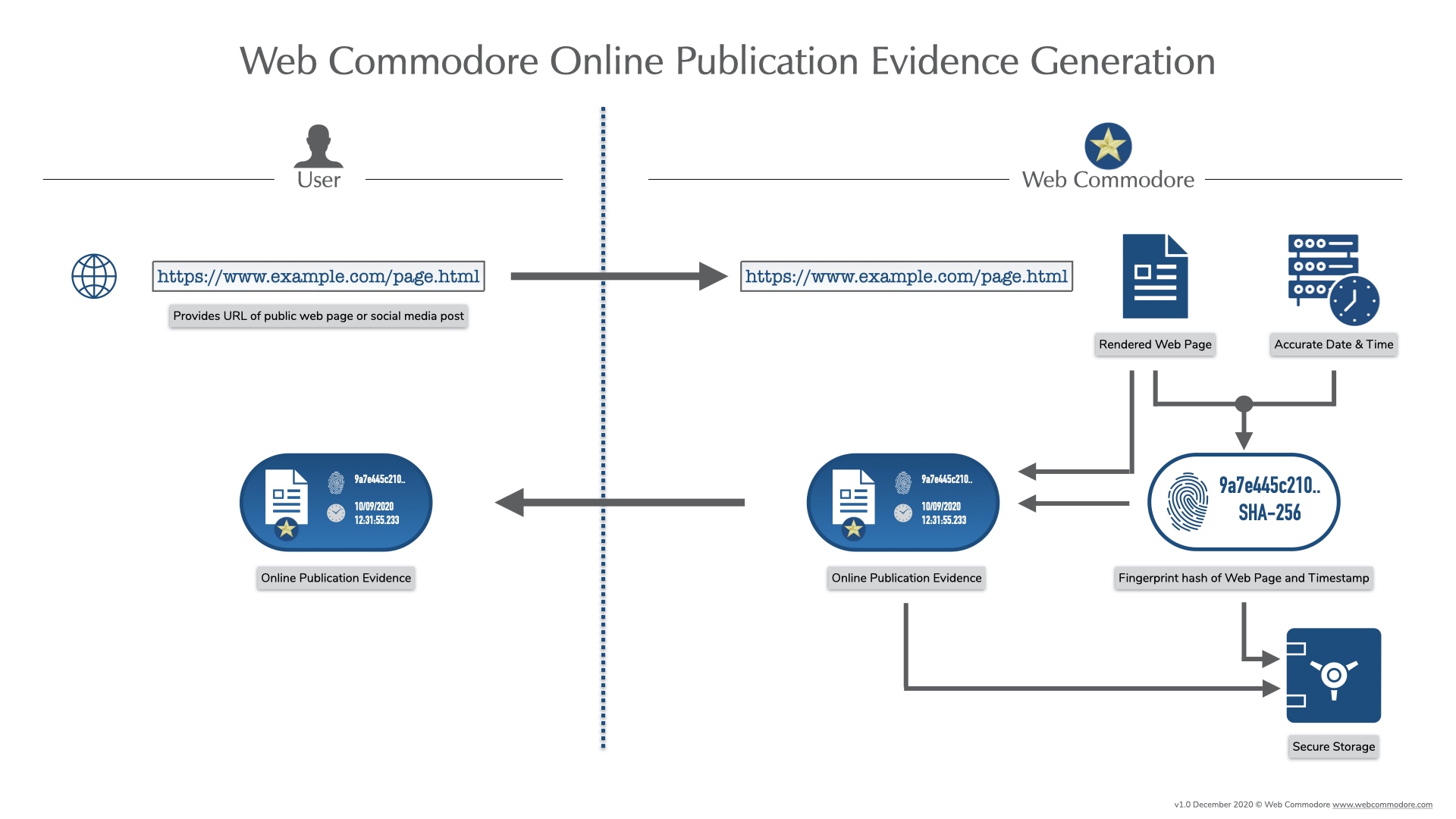
Web Commodore Online Evidence
Record proof of harm to your reputation
Protect your reputationRecord evidence of defamation, fake news and cyber-bullying
The online world has a dark side. Publication of fake news, falsehoods damaging to your brand, defamatory content as well as cyber-bullying are on the rise. But how do you fight it without solid evidence? Screenshots are insufficient.
Generate solid evidence of public web pages or social media posts containing false information. Incorporating an accurate timestamp, Web Commodore evidence of online publicatin is admissible in court.
Start recording proof of false information published online

Certified Records of Online Content
We take certified snapshots of what's published online. Incorporating accurate timestamps our digital evidence records provide solid proof of publication history.

Solid Proof
The chain of custody is paramount to digital forensics. We generate and store digital evidence that can be verified by authorities and courts.

Independently Verifiable
We securely store digital evidence in the cloud so it can be accessed and verified at any time.
Web Commodore Technology

1A snapshot source is created from a user-submitted URL of a public web page or social media post.
2Web Commodore takes a snapshot of the web page and stamps it with the accurate date & time.
3A SHA-256 hash fingerprint is generated for the web page and timestamp combination.
4Online Publication Evidence is generated from the web page snapshot, SHA-256 hash fingerprint and timestamp.
5The Publication Evidence is stored securely in the cloud where it can be accessed and verified by authorised parties.
Related Web Commodore Blog Articles

Are You Protecting Your Social Brand Enough?
It is safe to say that more and more businesses and brands are built online than ever before. As well as through bespoke websites and online advertising, we are making sure our customers know who we are and what we stand for through extensive social media accounts. Whether it’s Facebook, Twitter, Instagram or YouTube, your social media can become your personality online. This is all the more reason why it’s crucial to protect yourself and your image as much as you possibly can.
Read More →
Reputation Isn't Everything - Or Is It?
You’re a public figure, celebrity, or run a popular brand or business. Things are going great. You’re making money, building presence, and your PR strategies are ensuring your name is hitting the newswire in the best possible way. However, good press can only go so far, and for that reason, it’s tempting to fall into a period of complacency. Even if you’re riding high on a variety of successes and successful moments, it can only take a slight misfire or a counter-claim to bring your success toppling down again.
Read More →
3 Good Reasons to Back Yourself Up
Regardless of the type of business you run, whether you are a public figure, or if you are in the public eye for any other reason, it has gotten more and more important for you to back yourself up. In recent blogs, we’ve looked at specific ways in which you might wish to protect your IP, your copyright, and to even prove that you are abiding by specific regulations and controls.
Read More →
Are You Protecting Yourself Enough Against Fake News?
In the past few years, fake news has become nothing short of a phenomenon. With social media and networks such as Facebook becoming a leading way for people to share breaking news stories, it’s safe to say that the lines between what’s real and what’s fake are starting to blur. There are two side-products of this phenomenon – one, of course, is that readers will struggle to realise what is real and what is fake.
Read More →

